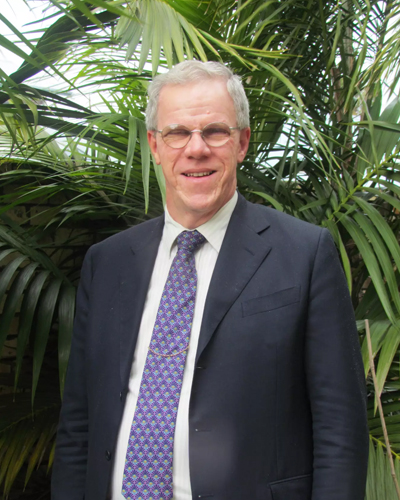
Our story is our people. Without our unique compliment of team members, we would not be who we are. We each bring something different and inspiring to what we do. We are all about people. People who help people to get where they want to be and do what they want to do.
Tell us a little bit about yourself?
I was born and have lived almost all my life in Auckland. I first did a science degree in Physics in the 1980s but decided on law after spending a couple of years on a Working Holiday in the UK. When I am not running the law practice, I learn and teach Indian and Western philosophy to engage my mind and to enrich my life. My daughter is in her 30s, and she works in London in the creative arts. My present wife is from San Francisco; we met on a philosophical retreat in Ireland, of all places.
You are classified as legally blind. How have you overcome this seemingly limiting disadvantage to become one of New Zealand’s most renowned immigration lawyers?
I was partially sighted from birth, so that to me it seldom feels like a loss or a disadvantage. I simply find ways to work around the challenges that do come up. Attitude is everything – or rather, it never occurs to me that I should let myself be held back. In my legal work, the use of IT definitely makes things easier than they were when I started practising in the 1990s. The fact that I can’t drive is an advantage – gotta love Uber!
What advice do you have for immigrants who face a whole set of different challenges as part of their immigration process?
Obviously, I’m going to say “get a lawyer”. Seriously, though, we get so many people come to us after they ran into trouble because they tried to deal with a difficult situation on their own, or because of what their friends told them. Occasionally, their case has been wrecked by professional advisers who handled it poorly. The worst part is that sometimes, by the time they contact us, it is too late to fix it. The real moral of the story, then, is to check whether the adviser has a solid record of experience, especially with the issues which you need to solve.
Why do you do immigration work?
Every week, perhaps every day, some new scenario comes in front of me which I hav never seen before. The rules are not only complicated, but they keep changing with every new piece of Government policy. I like testing my mind against the legal questions, finding solutions or ways to argue in favour of a client.
What is the most satisfying aspect of your work?
It is great to know that we have changed someone’s life for the better by getting the win. That was espcially so when I used to represent refugees in the 1990s when it could mean life or death, but it is still meaningful when we resolve a client’s immigration situation, and take away their fear and uncertainty.
What do you think immigrants find the most challenging about the immigration process?
As with any complex system, the biggest difficulties are the things that people don’t even know about until they come around to bite them. This can be as simple as failing to understand just how much evidence a couple needs to provide for a Partnership Visa application. A big part of our job is to raise a migrant’s understanding of how much they need to do in order to help us to help them.
What are some of the biggest mistakes immigrants make when they apply for visas?
Some people decide not to tell the whole truth about their history, such as an old criminal record or being refused a visa to another country. I am continually amazed how these troublesome little facts come to light – and they do. In many cases, hiding this information is much worse than the original issue itself. If we get the chance to advise someone at the outset, we tell them to front up about the bad history and let us deal with it. Otherwise, it becomes much harder to fix things later on.
How can you help them to navigate the immigration process safer/better?
When someone meets us for the first time, either in-office or on a video call, we can often identify multiple options for them, some of which they were not aware of. Normally, two lawyers attend those meetings. They might see the client’s situation in different ways, and even constructively disagree, which is a good way to tease out the best solution. We also have a duty to warn people if a particular course of action is less likely to succeed, and ensure that they understand this before we take formal instructions.
Why do people immigrate and why is New Zealand a choice for those that want to immigrate?
Migrants come here for a better life – or to escape from a worse one. If they are prepared to travel this far, to a country which may be very different to their own, then they probably see New Zealand as a place where they can be happy and live in peace. It is unlikely many migrants come here for the money. Instead, this country still retains one of the safest, most politically stable, and least corrupt environments in the world. More recently, it has been suggested that New Zealand’s geography protects it from some of the extremes of climate change. In coming years this may become a dominant reason for people to choose to find a home here.
Book a consultation with Simon and team to get your immigration sorted.